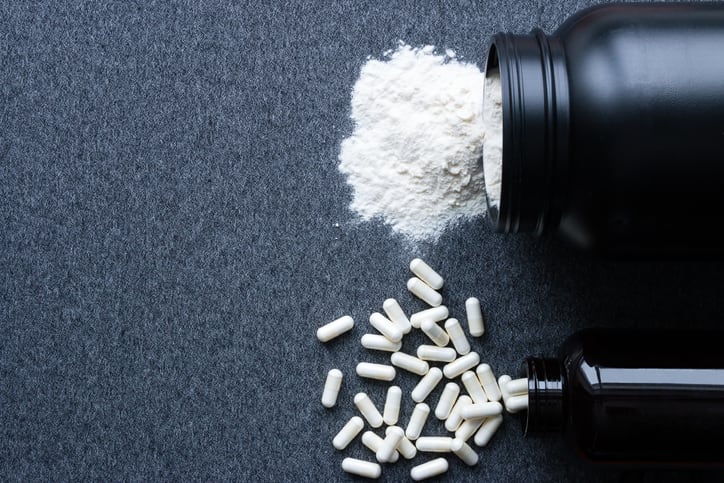Medium-term creatine supplementation appears to reduce general fatigue and other conditions related to post-Covid-19 fatigue syndrome such as loss of sense of taste, breathing difficulties, body aches, headache, and difficulties concentrating, according to research published in Food Science & Nutrition.
The study, which examined young-to-middle-aged adults suffering from moderate post-Covid-19 fatigue syndrome, analyzed patient- and clinician-reported outcomes when administering 4 g of creatine monohydrate per day to six patients for six months.
The researchers found supplementation significantly improved patient scores for several post-Covid-19 fatigue syndrome-related symptoms, including a compelling drop in lung and body pain after the intervention.
The creatine was provided to patients by Alzchem GmbH. Participants were asked to refrain from using any other dietary supplements and to keep a regular diet during the trial.
Brain connection
Post-viral fatigue syndrome (PVFS), which is not only limited to Covid-19, is a perplexing long-term neurological disorder, formerly known as chronic fatigue syndrome or myalgic encephalomyelitis, the researchers said. PVFS may mean the inability to participate in routine activities that were possible before becoming ill, lasting for more than six months, and accompanied by fatigue, post-exertional malaise, and unrefreshing sleep.
“We found that creatine significantly increased total creatine levels in several locations across the brain (also a skeletal muscle), with an increase up to 33% (for the right parietal white matter),” the scientists said.
This is significant, the researchers say, because one impact of PVFS is that it results in more absorption of creatine by the brain after Covid-19, a possible dysregulation of the blood-brain barrier. This may enable more creatine uptake by the brain and offset the creatine deficit seen because of the disease.
The study showed there was improved brain performance after creatine intake, with patients reporting a significant drop of 77.8% in scores for concentration difficulties at the three-month follow-up and no concentration difficulties at the six-month follow-up.
The scientists said a future study might consider a comprehensive set of biomarkers to address molecular pathways of creatine action in the brain of patients with post-Covid-19 fatigue syndrome.
Study limitations
The study sample size was small, something the researchers acknowledged was a hinderance.
“We selected here a sample of young-to-middle-aged adults suffering from moderate post-COVID-19 fatigue syndrome; whether creatine is equally effective in other PVFS populations (e.g., elderly, children, patients with less or more severe disease) remains unknown at this moment. Although minor, a difference in age between groups could influence the results. The relatively small size of our sample also restricts identifying possible gender-related relationships in the data,” they said.
In addition, the researchers were unable to account for creatine intake from a regular diet that might impact the total exposure to creatine, as well as for regular physical activity that could affect tissue uptake of creatine.
Source: Food Science & Nutrition
“Effects of six-month creatine supplementation on patient- and clinician-reported outcomes, and tissue creatine levels in patients with post-COVID-19 fatigue syndrome”
Authors: J. Slankamenac, et al.

